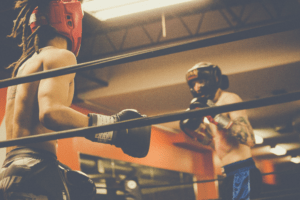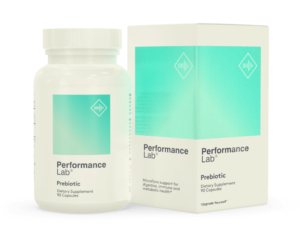Have you ever missed work or school because of a severe, throbbing, and pulsating pain you felt in your head?
You thought it would just go away after a day, but you find yourself nauseous, vomiting, sensitive to light or sound, and extremely tired. You may have a migraine; these are some of the most common signs you’re experiencing one.
Stop Suffering From Frequent Migraine Pains
If you’re reading this now because you’re having it frequently and are bothered why it keeps on occurring, knowing some of the reasons why migraines happen may at least relieve you.
After all, knowing the root cause of migraines can help you understand what to avoid next time.
Plus, apart from going to a medical professional, having a bit of knowledge about how migraines work can, at least, allow you to properly deal with them the next time it happens.
Facts about Migraine
You are not actually alone in this misery because, according to National Headache Foundation, migraines affect 13% of the world’s population and 70% of which are women.
Additionally, in the workplace, a chunk of company losses due to employee absenteeism and less productivity are associated with migraines.
While this is a common issue for people, the symptoms and incidence vary by individual. Factors that may be affecting this are age, gender, environment, etc.
Surprising Reasons that Cause Migraines
You cannot prevent or even anticipate a migraine attack if you don’t know the triggers. Why did it happen yesterday but not today? Is it because of the weather or the food you ate?
Indeed, there’s no single cause of migraine, but we have narrowed down the possible reasons, and you would be surprised by what’s about to unfold.
Several reasons would be out of your control, so focus on what you can do to stop migraines from bothering you as best as you can.
1. Anxiety
The immense feeling of anxiety can be a reason for your migraine. Ironically, a migraine can also cause anxiety.
It’s like a cruel cycle of constant worrying about when the next migraine attack will be, feeling vulnerable about the symptoms, and having no idea of what the cause of the migraine is.
If you think this is the one that’s causing you migraines, it’s best to see a healthcare professional who can professionally suggest you medication or therapy to help you stop this cycle.
2. Stress (Mental and Physical)
Stress is a culprit in many health issues such as muscle tension, stomachaches, and also migraines.
However, the stress we are referring to here is not limited to mental stress caused by your toxic boss or colleagues, deadlines, family, or romantic relationship issues, but it can also stem from physical stress from working overtime and intense physical exertion, including sexual activity, which triggers migraines.
Research shows that physical exercise is a great way to stimulate endorphin production and reduce stress hormones.
Now, you might think that you could just run or punch that bag at the gym the whole day to vent, but hold your horses!
Remember, too much of something is not good. So, be sure to exercise in moderation, keep hydrated, and properly eat before hitting the gym or just skip it if you’re having a migraine.
If you are suspecting that your current physical routine exercise is causing you migraine, you can switch to low-impact workouts like yoga.
Yoga can help reduce stress and anxiety. It can also improve your mood and overall sense of well-being. Getting away from your stressful work for a day or two to rest both your body and mind can be a good call.
3. Hormones
Ever wonder why women have more frequent migraines than men?
Well, 50% of women suffering from migraine confirmed the link between headaches and their period, says the National Migraine Centre.
This is the so-called “menstrual migraine,” which typically comes about up to 2 days before or at the first 3 days of the menstrual cycle.
This is because of the hormone, estrogen, which significantly fluctuates during the menstrual period. Regrettably, pregnancy, nursing, and menopause could also trigger migraine attacks.
4. Sleep
Too busy on weekdays that you slept past 1 am or too relaxed on weekdays that you already woke up past 11 pm? Expect to get a migraine from this!
Sleep is like a double-edged sword. Getting 7-9 hours of good night’s sleep will help you ease your pain, but if you slept too much or messed up your sleeping cycle, it will aggravate furthermore.
People with chronic migraines, which means getting headaches 15 or more days per month, are highly susceptible to sleeping disorders than the common public.
Sleeping disorders include insomnia and sleep apnea. Sleep apnea is a condition that causes intermittent stops of breathing when asleep.
Often than not, people having sleep apnea are awakened by a headache. On the other hand, people who have insomnia are more likely to have bouts of migraines consistently than those who are not.
If you are already suffering from asleep–related headaches, you can see a doctor and help give direction to your treatment through a sleep diary. It is vital to consider various aspects of your sleep to help you overcome the issue.
5. Specific Food and Drinks
Does our diet really trigger migraine?
Scientifically speaking, there’s evidence that reducing certain trigger foods can prevent migraine patients from attacks. Certain ingredients, additives, and flavor enhancers could be culprits for some people.
However, whether food can trigger migraines depends on how your body reacts since triggers vary on a personal level.
The best way to find out is to identify it yourself.
You can keep a food diary and find which foods trigger you. Just to give you an idea though, some foods are already notoriously known to cause migraine attacks:
Excessive Caffeinated Drinks
If you’re one of the people who cannot start a day without a cup of coffee, this can be the reason why you’re getting a headache.
A study shows that excessive caffeine consumption, which could be from coffee or tea, induces headaches in adults and even in children.
Caffeine is addictive, and it boosts adenosine in your brain, which is the same substance that shoots up during a migraine attack.
Before you start feeling frustrated that your coffee time is now patrolled, be sure you catch the use of the word “excessive.”
There are times when you really need a cup. And if that’s the case, just be sure to limit your consumption to less than two cups per day.
If your intake is above this, you can start cutting back on coffee to help you reduce your migraine frequency.
Alcohol and Red Wine
On special occasions, a little sip might not hurt, but be careful with alcoholic beverages since they are a common trigger.
This has to do with tyramine and histamine, which will worsen your headache.
This would explain the severe head pain when you wake up with a hangover after partying all night!
Chocolate
Do you have sweet tooth? We hate to spoil your mood, but you may need to start getting away from chocolates if you’re having frequent migraine attacks.
Some migraine patients confirm chocolate as a trigger factor.
Chocolates contain caffeine and very high sugar levels, which may also cause other health conditions like diabetes, so you lessen your chocolate intake this time.
Tyramine-Rich Foods
Like red wine, people with migraines will suffer from eating foods rich in Tyramine.
A few examples include aged cheese, cured meat (i.e sausages and corned beef), pickled food, and soy products.
Does this mean you cannot them anymore?
Well, enjoying these kinds of foods once in a while is okay. However, you can definitely lessen your consumption or find alternatives to help you with your migraine attacks.
Artificial Sweeteners and Food Enhancers
You can also blame diet coke and other calorie drinks for your migraine. Aspartame, which is an artificial sweetener, is commonly found in these drinks.
It’s also better to just stick to naturally prepared foods since processed ones contain very high MSG content. All of these can cause migraines.
These are just some of the most common foods that can trigger a migraine, and there are others out there too. The good thing is that you can learn to identify which ones would trigger you by being mindful.
Remember that food reacts to migraine sufferers differently.
The best thing to do is to have a food diary and examine your eating habits and patterns. By elimination process, you can narrow down and recognize the foods that cause your headaches.
6. Changes in Weather or Environmental Conditions
Surprisingly, any change in barometric pressure or temperature can also prompt a migraine. When there’s a storm lurking, a migraine might be too!
This headache trigger might have something to do with the sensory stimuli. The brightness of the sun or flashing lights can push you toward migraine territory
Other environmental conditions like loud sounds from blasting music, harsh lights from your surroundings, and even overwhelming smells like strong perfumes, paint thinners, and smoke can cause a migraine.
Sensory stimulation varies per individual, so find out what triggers you. While environmental factors are out of our control, we can always prepare ahead.
You can bring sunglasses, earmuffs, masks, or just remove yourself away from the stimulus to relieve you from a migraine.
7. Medications
Ironically, certain medications that relived your pain can also make your migraines worse.
This phenomenon is called Medication Overuse Headache or a Rebound Headache. Any pain medicine has a limited effectivity period. When the effect wears off, the pain returns often worse than before.
Then, you take more medicine to ease the pain, your tolerance increases and the cycle goes on, thus causing more pain.
Medicines that can cause rebound headaches or trigger migraine include:
- Acetaminophen, aspirin, or non-steroidal anti-inflammatory drugs (NSAIDs)
- Pain medicined such as codeine or hydromorphone
- Oral contraceptives and vasodilators such as nitroglycerin
Because medications are critical for your health and we can’t do away without them sometimes, be sure to talk to your healthcare provider to ask for other alternatives or treatment plans.
8.Family History
Yes, migraine has something to do with your blood. It can be hereditary, so it’s in your genes. If most of your family members suffer from migraines, then that could answer why you have it too.
To put this in numbers, if both your parents have migraine, then there’s a75% possibility of you and your siblings having it too.
If that 75% applies to you, you can share this article with your family, so you can discuss it amongst yourselves and help each other.
Ultimately, hereditary reasons for migraines do not stand alone and the frequent pulsating you have seems to be caused by a combination of factors: genetic, environmental, and lifestyle.
Finding Migraine Triggers
You might already have a hunch on what caused your migraine – maybe it’s a caffeine-related or sleep-related attack? However, knowing the possible causes is just the first step.
Knowing the cause may be simple, but some triggers might need deeper digging.
When you get a migraine attack, list down the potential trigger. Make a checklist based on the reasons above, or if there’s one that’s not mentioned here, consider it too.
Once you find out what triggers you, the next step is to take action to get better results.
Final Thoughts
Certain lifestyle changes are vital to evade the reoccurring migraine. Your action may include abstinence and control, depending on the reason that most applies to you.
Of course, sacrifice and resolve are necessary!
If frequent migraine pain is still there, and you have already tried everything that is under your control, check with your healthcare provider.
They can provide alternative treatment suggestions, and if required, prescribe medication.
Migraines are common to people, but they can sometimes just drastically make our lives worse.
Our health and overall well-being should always be one of our main priorities, so start understanding and listening to your body more.
Do your best to keep frequent migraines away so that your days aren’t ruined by a pesky headache.






